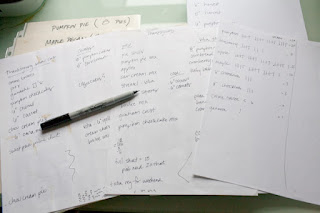I love music! As a baby I sat on the floor and twisted, “dancing” to the music before I could walk. At one time I played both flute and piano and enjoyed listening to classical music while ballet dancing en pointe. (It’s amazing what we can do when we’re young!) Now I use music as a tool in my writer’s toolbox.
If I need help with pacing, I pick a song that represents the speed at which I am trying to write. Once, when I attempted to write an energetic and frenetic scene, it just wasn’t working. I tried drinking caffeine for an energy boost to force the pacing, but it became jagged with big swings instead of steady with natural ups and downs. Frustrated, I listened to different types of music such as disco, rock and rap and finally found a British New Wave song. I played it numerous times writing to match its rhythm.
For a scene in a contemporary mystery that took place on a runway filled with fierce, strutting models wearing luxe clothing, I wanted the tone to have an edgy, contemporary feeling. I used Block Rockin’ Beats by the Chemical Brothers with its pounding electronic rhythm to inspire me. (After finishing, I took ibuprofen and a nap.)
Similarly, I use music to maintain continuity. When I want to match the tone and mood of something I wrote the previous day, I make a note of the songs and play them the next day.
Also, listening to music that feels like my character’s essence helps me write more believable dialogue. When I strive to write a strong female voice I might listen to Joss Stone, Jill Scott or Janelle Monáe. For a superficial young male voice I play songs like Runaway Baby by Bruno Mars.
Sometimes music can be more effective than talking. Singer Aretha Franklin sang her way out of receiving a parking ticket. She was dining with friends in New York City when she saw an officer ticketing her car. So, Ms. Franklin serenaded the meter maid then autographed an envelope instead of a ticket.
It can also save lives. According to the BBC, in 2005 a nine year old English boy emerged from a coma after his mother played a song by his favorite band, Green Day. The song was American Idiot.
Recently, I learned that some authors share their music playlists so readers can feel a book’s intended mood. Fans enjoy it since it adds another dimension to a book. (I know--one more thing for writers to do.)
In the interest of sharing, here is my playlist while writing this blog:
I Love Music – The O’Jays
Don’t Stop the Music – Yarbrough & Peoples
Music – The Beautiful Girls
I’ve Got the Music in Me – Kiki Dee Band
Do you listen to music while you write? Do you use it to help you write?
























